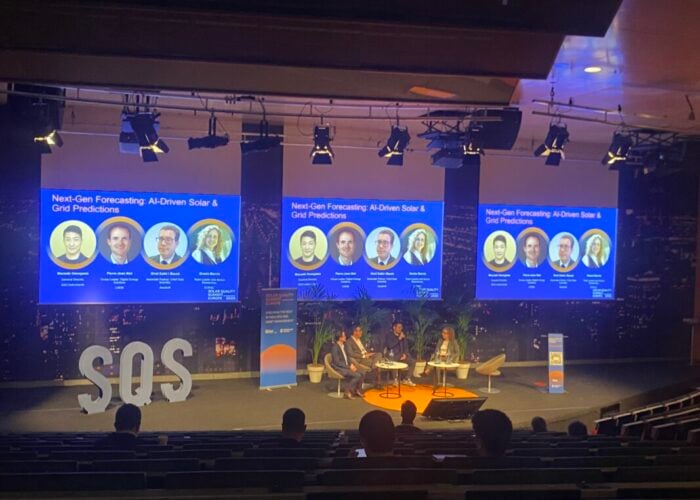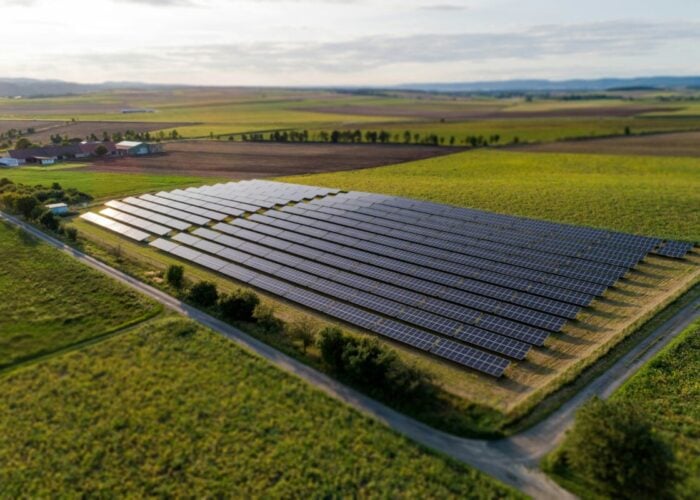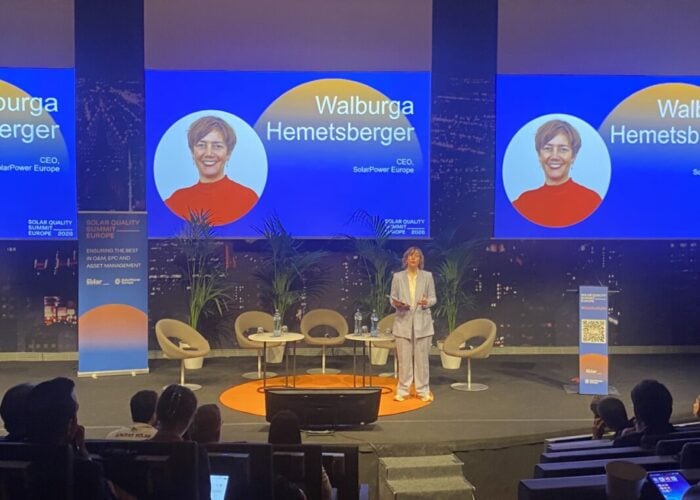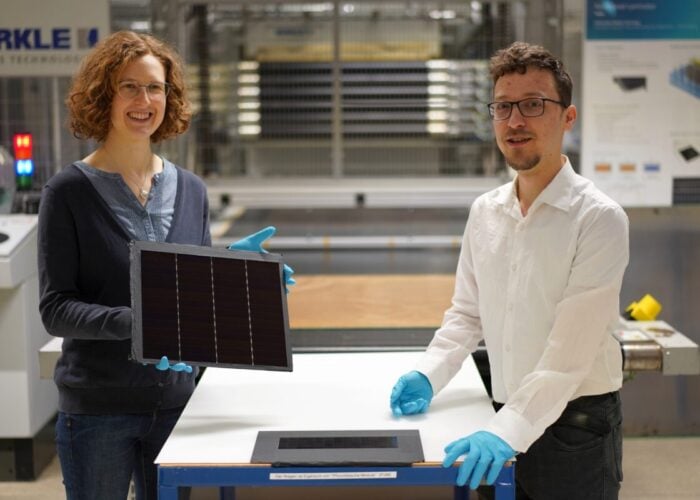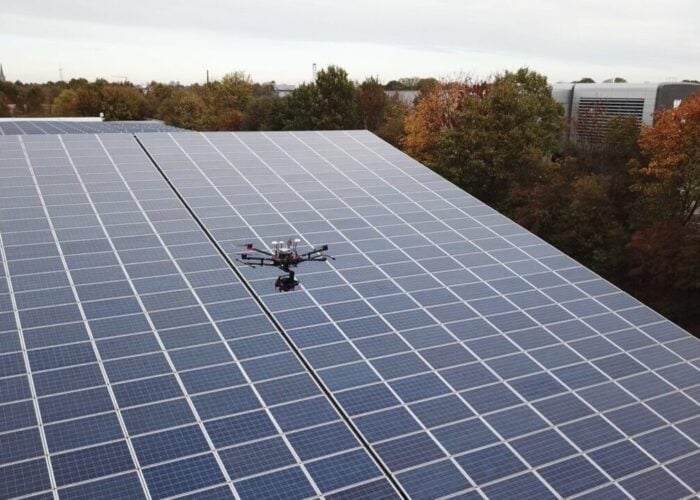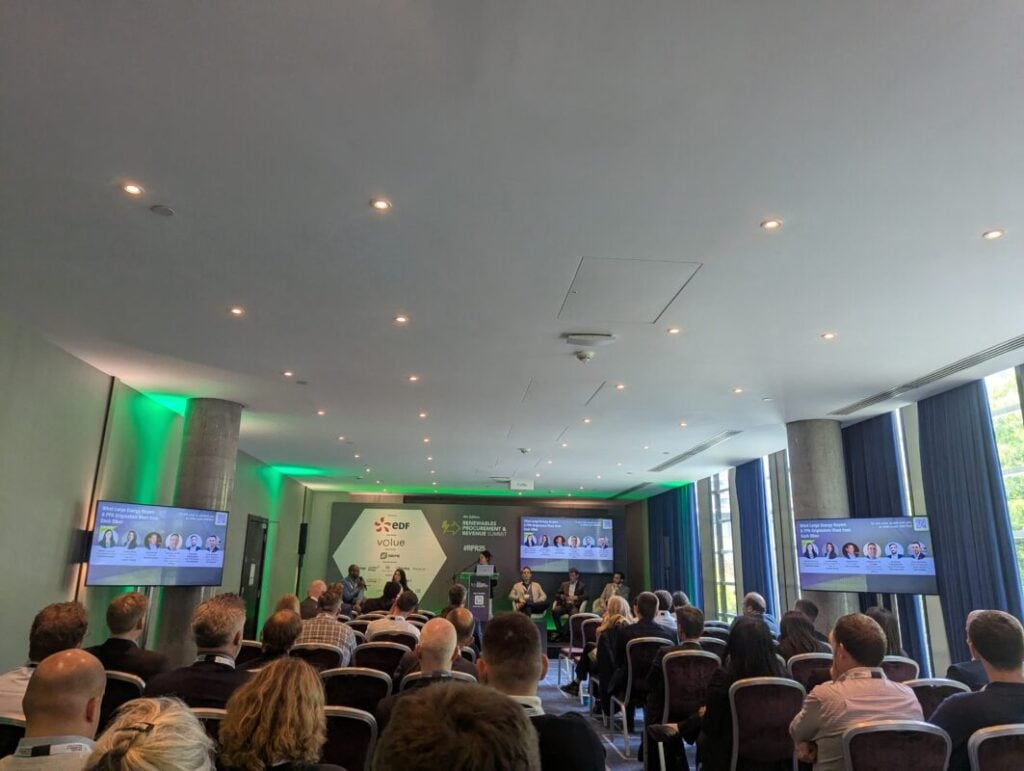
There is significant potential for corporate power purchase agreements (cPPAs) to help deliver the energy transition in Europe, provided stakeholders are able to work collaboratively and quickly to achieve shared goals.
This was a conclusion drawn by speakers at a panel on suppliers and offtakers, and what each side wants from negotiations, held at Solar Media’s Renewables Procurement & Revenue summit this afternoon in London.
Try Premium for just $1
- Full premium access for the first month at only $1
- Converts to an annual rate after 30 days unless cancelled
- Cancel anytime during the trial period
Premium Benefits
- Expert industry analysis and interviews
- Digital access to PV Tech Power journal
- Exclusive event discounts
Or get the full Premium subscription right away
Or continue reading this article for free
“There’s a good alignment with corporates, and we need to work collaboratively together, not only to align the volume levels but the shape of the volume,” said Francisco del Rio de Pablo, associate director for power sales, Europe, at renewables asset manager NTR. His comments reflect a sentiment shared by many at this year’s event, that the variable nature of renewables such as solar can make such forms of power generation unsuitable for providing the baseload supply integral to corporate functions.
“If we go to the challenges that we see, it’s probably the price level, with some of the markets being cannibalised [such as] solar in Spain,” del Rio de Pablo continued. “The structures are also something prevalent, particularly with the generators’ side, which are keen to enter into pay as produce structures, rather than baseload structures.”
Meanwhile, in the UK, Scott Burrows, co-founder of commercial and industrial solar provider Eden Sustainable, said that the relatively private capital-driven nature of the UK energy market had encouraged a lot of activity in the PPA space.
“PPAs aren’t being held back by any regulatory backdrop, if anything they’re being incentivised,” said Burrows. “Investors love the contracted revenues in that space.”
“The most interesting thing here is what the private energy market structure can do [for us] as a developer of smaller generators,” he continued. “It’s trying to create the value, which we need to stimulate investment in these smaller assets, and the challenge has been creating something that is slightly above market, which is very different from the corporates who want to buy power at the market rate. It’s an economies of scale [issue].”
Indeed, cPPAs can help provide crucial long-term security for offtakers, particularly if these offtake agreements combine a number of technologies, such as solar, wind and storage.
“Having the long-term certainty of financing is key,” said Anastasios Papazachariou, senior PPA manager at solar developer, Cero Generation. “With the market being volatile and changing constantly – and the targets changing as well – having corporate offtake backing for a project is key, both to improve institutional relationships, but to be able to work on our cause, which is to bring [online] more renewable generation.”
‘Time kills deals’
The panelists agreed, however, that the time it takes to secure offtake agreements is a significant limiting factor in corporate interest in the European PPA space.
“Especially with buyers that are entering the PPA market, a point of friction is the stakeholder alignment,” said Candela Monge, director of platform and sales in the EU at market intelligence firm LevelTen Energy. “That’s a big issue that causes delays, and we’re seeing around 25-50% of developers drop out their project from the procurement processes … the decision-making for the buyers [is] taking a lot of time and time kills deals.”
“The key in terms of timelines is understanding the timeline to reach financial close and to build the asset,” agreed Papazachariou. “In Spain, we have some very strict deadlines in terms of when we can bring the project online … it’s a window that if we miss energising the project, the project is dead.
“A big reason why – apart from having other options – is we enter the market trying to [conclude a deal that] aligns with the financial close, for the most part.”
The panellists discussed the potential for a form of ‘vanilla PPA’ to enter the corporate offtake space: a type of standardised offtake agreement that can be adapted for individual deals, rather than requiring each dealmaker to create a unique agreement from scratch. The panel’s audience was asked whether they would rather work with standardised or individually tailored PPAs, and 64% of attendees suggested they would rather use the former.
At this year’s Intersolar Europe event in Munich, attendees described some of the challenges associated with such a standardised approach on a global scale, but panelists at today’s discussion were optimistic about the time- and effort-saving potential of this approach.
“We’ve seen great success in providing some standardisation in contracting,” said Monge. “One of the main points of friction is delays, so standardisation helps with the speed and efficiency of transactions. we’ve launched a process called ‘LEAP’ (LevelTen Energy’s Accelerated Process), which is a type of procurement with a standard contract; full standarisation is not possible as every market is different … but a hybrid approach with some balanced, market-standard approaches that are flexible, from a commercial perspective, is the best approach.
“We’ve managed to close deals five times faster – in 72 days – and we improved the price of the PPA, by obtaining prices US$5 below the average of what buyers were conducting in their projects.”
This general sentiment, that PPAs in their current form are a useful but flawed means to secure power supply, is a broader reflection of a similar sentiment expressed earlier today at a panel held on data centres.
PV Tech’s publisher Solar Media is hosting the Renewables Procurement & Revenue Summit on 21-22 May 2025 in London. The event is exploring meeting Europe’s energy demand, the role of data centres in the energy transition, the outlook for European power and PPA prices and more. For more information, go to the website.


